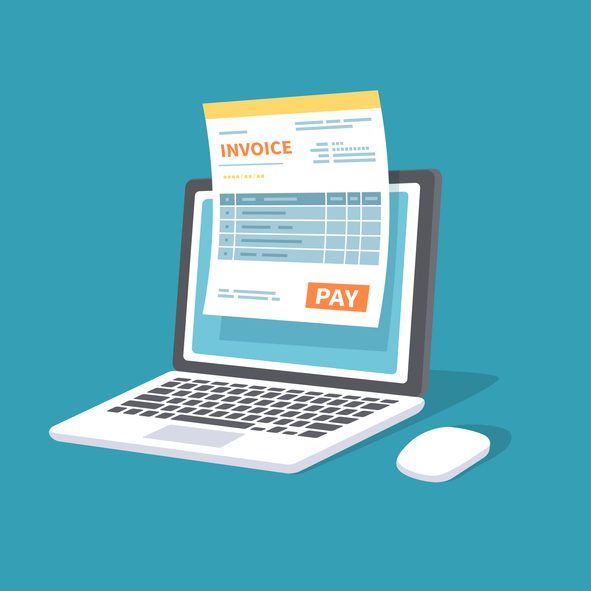Inflation is roaring back. These tips will help you mitigate its impact on your organization.
You’re no doubt feeling the effects of inflation at the gas pump, grocery store, and in supplies for your business. Economists are predicting that rising prices are likely to be a feature of the economic landscape for some time to come. Rising global energy prices and consumer spending are two key factors pushing up prices. Retailers recouping pandemic losses and labor shortages are also having an impact.
Current inflation levels are not expected to persist much beyond the end of the year. Still, such predictions are not guaranteed, and businesses must survive this turbulent time. Following are actionable tips to help manage your business through a period of inflation.
Monitor Costs
Monitoring costs is a task that is crucial for sound financial management at any time. However, keeping an eye on costs becomes even more critical when prices rise. Consequently, it is advisable to complete a monthly variance analysis during periods of inflation to determine which costs are on an upward trend. It would also be wise to track gross margins to determine the combined effect on profit margins of the many small price increases.
Prioritize Expenditures
You cannot control price increases. You can, however, exercise control over what types of items you buy, and cutting some luxuries or unnecessary expenditures will soften the blow of rising prices on essentials. For example, you might reduce the quality of items not used in production. Saving money on non-essential items now might prevent the need to cut back on more critical supplies later.
Negotiate with Vendors
If your business has been relatively cash-rich in the past, it may have been some time since you reviewed your vendors. In which case, a period of inflation would be an excellent time to renegotiate for crucial supplies. Some vendors may offer more competitive prices in inflationary times to maintain valuable customers.
Related: Ten Strategies to Avoid Small Business Overspending
Stock Up on Inventory
Investing in inventory can be a way to protect the business against future price rises. But, of course, you must have the cash available to do this, and you must be confident that you can sell the stock in a reasonable amount of time. Having too much money tied up in inventory will reduce working capital, limiting your ability to cope with other impacts of inflation.
Manage Accounts Receivable
Inflation is likely to hit the cash flow of your customers. Customers will probably try to squeeze every day of credit they can from your business. Therefore, it would be advisable to keep a close eye on your aged receivables and step up your collection processes. It is also worth bearing in mind that the value of receivables diminishes with time during periods of inflation. The sale price of items sold three months ago could be lower than the current price, but the replacement cost of those goods will be higher. So, getting sales invoices paid fast is a priority when inflation pushes up costs.
Related: How Much Are Your Accounts Receivable Costing You?
Repay Variable Rate Borrowings
As prices rise, so too will interest rates. If you are carrying a lot of variable-rate borrowings, the cost of servicing that debt will increase. Consequently, if you have cash available, it would be best to repay variable rate loans during a period of inflation. If inflation is expected to continue rising, replacing variable rate loans with fixed-rate alternatives might be cost-effective.
Improve Efficiency and Productivity
You can mitigate the effects of inflation by improving efficiency and reducing waste. Then, even though unit prices may increase, you will be using less, so the total cost of production will remain constant or decrease. This approach can be used for raw materials and labor costs and applies to services and products.
Implement Proactive Price Rises
Increases in your sales prices may become inevitable. If that is the case, it is generally best to increase sales prices often in small increments to keep pace with inflation. If you leave it too late, it could cause cash flow problems and a significant price hike that could cause customers to go elsewhere. Alternatively, you might have sufficient cash reserves to weather a short period of inflation. In which case, you might consider maintaining prices to win customers from competitors.
Related: 10 Ways to Cut Business Costs Without Compromising on Quality
The Bottom Line
Inflation erodes profit margins and creates cash flow issues if no action is taken. However, sales price increases are not the only answer to the challenge. Reducing usage and waste will also help you weather the storm. Capping costs you can control, such as non-essential expenditures will also help. Indeed, suppose you can go through a period of inflation with no price increases. In that case, you might gain new customers, putting your business in a stronger long-term position.
Your Questions Answered Quickly
Whether your business is thriving and you can’t keep up, or you are waiting on clients to pay, Universal Funding can help your growing company. Call us at 800.405.6035 or complete our rate form today to learn more about invoice factoring and how it can improve your company’s cash flow.
About Universal Funding
Universal Funding is a nationwide invoice factoring solutions leader, supporting growth-focused businesses with scalable factoring solutions. With its invoice factoring, payroll funding, and purchase order financing services, Universal Funding provides clients with the working capital needed to grow and support their businesses without taking on new debt. Ranked as one of the nation’s top invoice factoring companies, Universal Funding provides cash flow financing for businesses all across the United States.





